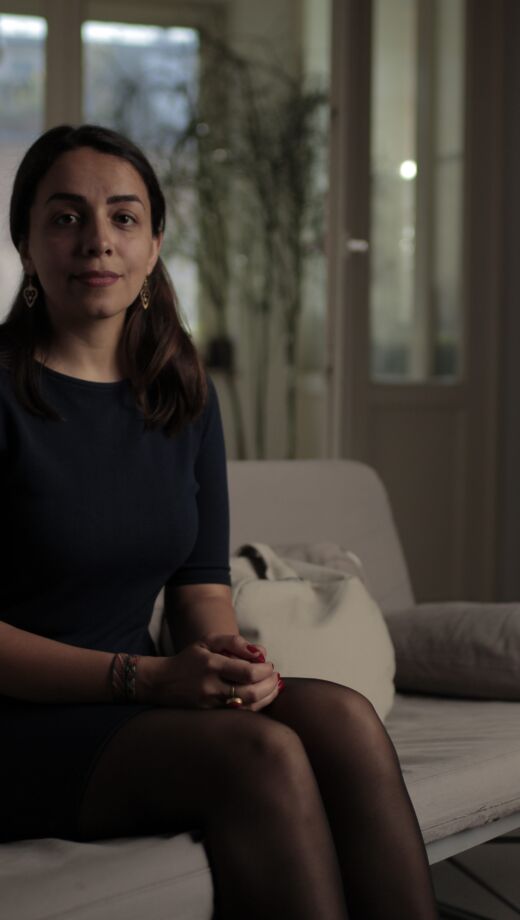Shahrzad Jabbari
Honouring her sister’s heroic spirit
When Iranian Reyhaneh Jabbari was sentenced to death for stabbing a man who threatened to rape her, her sister Shahrzad, along with their mother Shole Pakravan and sister Sharare, sprung into action. By telling Reyhaneh’s brave story, they expose the injustices suffered by women in Iran.
A determined woman’s voice on a recorded telephone call. ‘I’ll try to raise my voice to the public with all my heart on behalf of all women who’ve been raped,’ we hear. ‘Even if it costs me my life.’
The voice belongs to Reyhaneh Jabbari, and she is calling from prison. Reyhaneh’s freedom was taken away at 19. The man with whom she thought she had a business meeting, suddenly locked the doors and threatened to rape her. Picking up a knife she saw laying on the table, Reyhaneh stabbed him and fled the place. After the man died from his wounds, Reyhaneh was arrested and charged with murder.
The man turns out to be well-connected and powerful. Immediately, the newspapers pick up the story – and without hesitation find Reyhaneh guilty. ‘She was portrayed like a serial killer,’ says her sister Shahrzad Jabbari in the documentary Seven Winters in Tehran (Steffi Niederzoll).
The family – mother Shole Pakravan, father Fereydoon Jabbari and third sister Sharare – is filled with questions but they are kept in the dark. Then one day, 14-year-old Shahrzad is arrested for being an accessory to the murder. ‘A man I didn’t know started to ask me questions,’ she says. ‘I said I didn’t know anything. After a few more questions, he said: You can go.’ This was a relief to Shahrzad. But what she didn’t know was that in prison, Reyhaneh was told they would torture her little sister. This threat led her to make a false confession which would be held against her during her court trial.
During the grossly unfair trial that followed – the judge at one point even said Reyhaneh should have let herself be raped and file a complaint later – Reyhaneh is sentenced to ‘blood revenge’. This is a death sentence, but allows the victim’s family to forgive the accused and call off the execution. As can be seen in Seven Winters in Tehran, for Reyhaneh this came down to a choice between her life and her values. With an immense courage, she chose the latter. Reyhaneh Jabbari was executed on 25 October 2014.
Reyhaneh’s wish that her voice would be widely heard now becomes a reality with the release of Seven Winters in Tehran. Does Shahrzad feel the documentary will be able to make a change in Iran? ‘Hope is always there,’ she says. ‘Of course when people all around the world know what is happening in Iran and they try to be our voice, it could help. I have a sentence from my mom in my head: “When all people want something, nobody can do something against that. The power of people is so big.”’
Seven Winters in Tehran was shown at the Movies that Matter Festival 2023, where Shahrzad Jabbari was a special guest.
